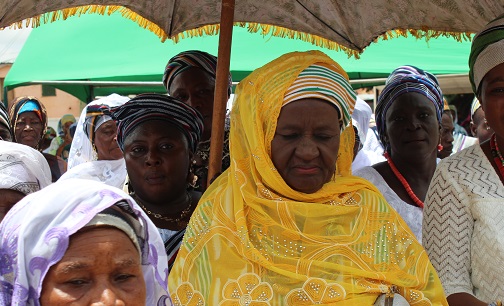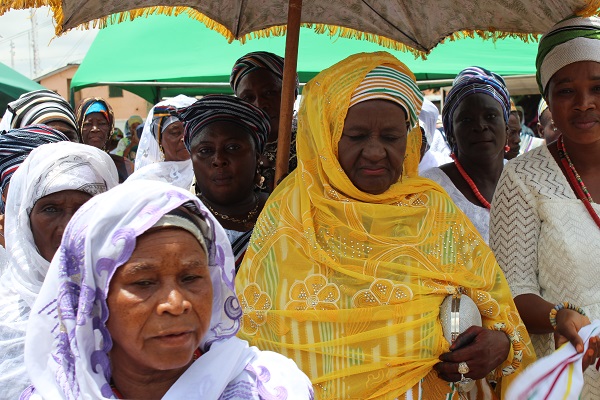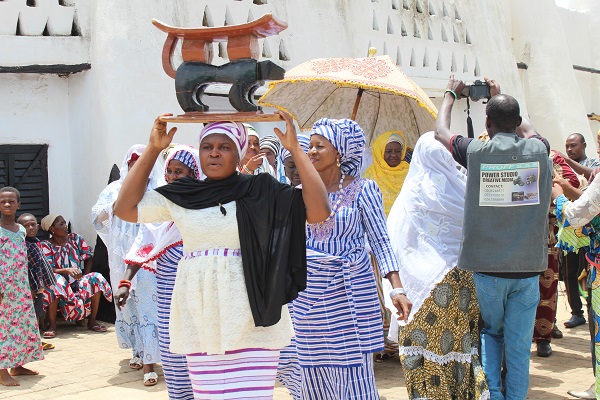
Wa outdoors first queen mother
The Wa Naa, Naa Fuseini Seidu Pelpuo IV, has oudoored a first-ever queen mother for Wa at an elaborate traditional ceremony in Wa, capital of Upper West Region.
The native of
The queen mother concept has only recently been embraced in the culture of northern Ghana, and in the Upper West Region, the absence of the Wa Pognaa was a conspicuous void.

Sharp transition
Widowed more than five years now,
Attired in white lace with a distinctly golden hijab, she stood out among her peers who showered her with praises, gifts, respect, and well wishes.
For the different generations witnessing the event, many were seeing it for the first time. And for those who may have seen it elsewhere, the experience may not have been on the same scale.
Yet, the scene of fellow women ushering in the new Queen
Addressing the gathering through one of his sub-chiefs, Sunche Naa, Naa Daudi Osman, the Wa Naa said women had always proven an important component of the traditional system, and the enskinment of a queen mother was an appropriate acknowledgement of their role in the overall development of the society.
He encouraged communities and traditional areas without queen mothers to enskin women leaders to ensure they contributed to the development of their people.

Girl-child education
She appealed to chiefs and landowners to consider giving greater farmland access to women since they constitute 70 per cent of the farm hands in the region.
The Regional Director of the Department of Gender, Madam Charity Batuure, said the institution of queen mother affords women the opportunity to contribute to the development of their people.
She urged the women to take the opportunity and not to underestimate their own potentials, but to be vocal about issues that affect their development.
She said society must appreciate and come to terms with the role of women in the developmental process.
The Regional Minister, Alhaji Sulemana Alhassan, said
